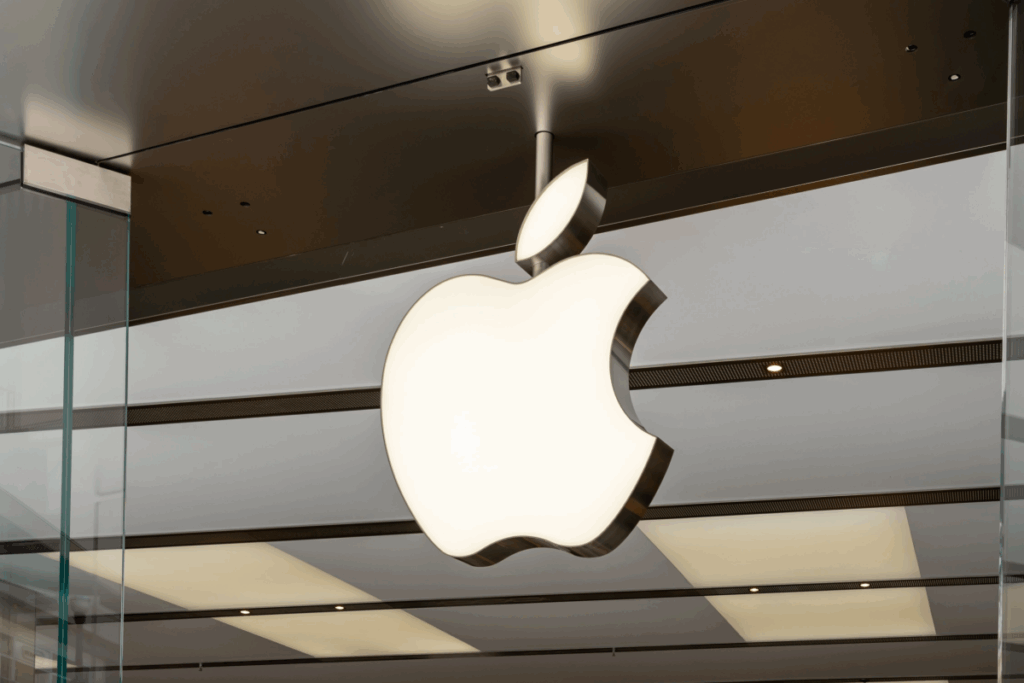Massive Investment Reinforces America First Policy
Apple is set to invest an additional $100 billion in the United States to expand its domestic operations, according to a White House official. The announcement, to be made by President Donald Trump, follows Apple’s earlier $500 billion commitment aimed at growing its footprint within the country. The move signals another major victory for the administration’s economic strategy focused on reshoring production and reinforcing American manufacturing.
“President Trump’s America First economic agenda has secured trillions of dollars in investments that support American jobs and bolster American businesses,” said White House spokesperson Taylor Rogers in a statement. The new initiative is expected to include the launch of an American Manufacturing Program that will move more of Apple’s supply chain to the U.S. and encourage other companies to follow suit.
Apple shares responded positively, rising 3.5% Wednesday morning, their largest daily gain since May. Despite this, Apple’s stock remains down approximately 16% for the year.
Push to Reduce Foreign Dependency
The Trump administration has consistently pushed major tech firms to produce their goods in the U.S. instead of relying on overseas supply chains in countries like China, India and Vietnam. The policy is rooted in national security concerns and the need to reduce economic dependence on foreign manufacturing hubs.
Implementing such changes, however, comes with challenges. Experts warn that the U.S. faces a shortage of skilled labor for large-scale electronics assembly and significantly higher labor costs compared to Asia. Moreover, Apple’s most critical suppliers are still based in Asia, which could complicate logistics and increase shipping expenses.
Earlier this year, Trump publicly stated his expectation that Apple would manufacture iPhones in the United States or face tariffs of at least 25%. He also expressed disapproval over Apple’s growing production in India, a country now facing higher U.S. tariffs under Trump’s latest trade policies.
Tim Cook’s Diplomacy and Ongoing Negotiations
Apple CEO Tim Cook has reportedly maintained open lines of communication with the Trump administration. According to White House sources, Cook has met privately with Trump to discuss the impact of tariffs. On a recent earnings call, Cook confirmed Apple expects to pay $1.1 billion in tariff-related expenses during the September quarter alone.
The company has taken steps to mitigate the impact of tariffs. As part of its previous $500 billion investment, Apple announced it would open a manufacturing academy in Detroit and partner with MP Materials, a U.S.-based supplier of rare earth elements essential for devices like smartphones and televisions.
Despite rising tensions, smartphones have been exempt from Trump’s most recent tariffs, including those targeting India. This exemption gives companies like Apple more flexibility as they adjust their supply chain strategies.
Tech Sector Aligns With Reshoring Trend
Apple is not alone in its efforts to localize production. In recent months, several tech giants have announced major U.S. investments. Texas Instruments committed $60 billion to build semiconductors domestically, while Taiwanese manufacturer TSMC pledged $100 billion for its U.S. expansion. AI leader Nvidia also revealed plans to build its supercomputers in the United States.
Analysts believe Apple is well-positioned to handle the evolving regulatory landscape. Tim Cook’s expertise in supply chain management, coupled with his relationship with the Trump administration, is seen as a strategic advantage.
“Tim Cook is known to be the supply chain genius of technology,” said Ted Mortonson, tech strategist at Baird. “His team likely knows what the Trump administration is thinking before it happens.”
Apple’s new $100 billion investment represents more than a financial commitment. It reflects a broader shift in how major tech companies navigate trade policy, geopolitical tensions and domestic expectations in a high-stakes global market.



